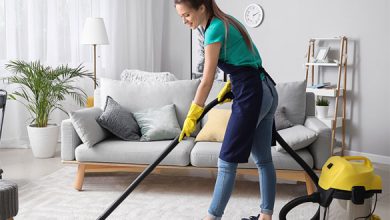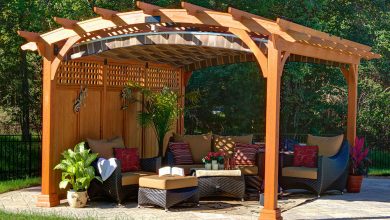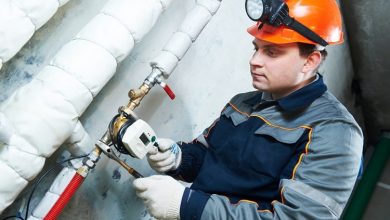Pros & Cons of Using Vinyl Plank Flooring for Your Custom Home in Canada

There is nothing more fascinating than building a custom home. You get to choose your own lot, select your preferred builder, buy quality material, and above all, create a custom home design plan.
What more could one ask for?
But did you know most homeowners find it hard to choose the most viable flooring option when building their own home in Canada?
That’s because there are hundreds and thousands of options available in the market. From classic hardwood to renewable bamboo flooring and contemporary vinyl, you can find everything in the market.
With all these available choices, it can be easy for anyone to feel lost. Fret not. We have created this post to help you understand all you need to know about vinyl flooring – its advantages, disadvantages, and more.
What is Vinyl Plank Flooring?
Vinyl plank flooring is a layered synthetic material. It looks more or less like the hardwood planks. The only difference is they are crafted from plastic instead of wood.
Most vinyl planks include 3-layers – a base layer, a design layer, and a surface layer.
Some premium-quality vinyl planks also come with additional layers to help with soundproofing.
Pros and Cons of Vinyl Plank Flooring
Pros
It is comfortable and user-friendly
Vinyl flooring is extremely comfortable and user-friendly. Whether you’re barefoot or with boots, these floors feel more comfortable than any other type of flooring available in the market.
Because vinyl flooring lands with thin foam support, it makes the floor less fatiguing, especially for those who walk a lot or stand for long periods.
It is available in a wide range of colors and designs
Vinyl flooring is available in a wide range of colors and styles. Whether you have vintage interior or contemporary decor, you can install vinyl flooring to complement the look and theme of your home.
It is waterproof and scratch-resistant
Another perk of installing vinyl plank flooring is that it is both water and scratch-resistant. Yes, you heard that right. Almost all vinyl variants are waterproof.
Also, it is super hard to scratch the vinyl surface, making it a perfect solution for households with kids and pets.
It is one of the best wood floor alternatives
It is easy to install and maintain
Thanks to the innovation in the vinyl flooring industry, vinyl products are now available in more DIY choices. Unlike in the past, when vinyl was available in huge sheets, today, you can find smaller and more manageable planks, which are much easier to install and remove.
In fact, you can easily install these planks without using any hammer or sawing. Some brands have also introduced self-adhesive vinyl planks. All you need to do is remove the backing and press it on the floor.
Besides that, vinyl flooring requires minimal maintenance. Sweep it, clean it with a wet mop if need be, and use a commercial spray once in a while to revive its glow. Easy peasy…
It is durable and long-lasting
The good thing about vinyl is that it is not a delicate material. You don’t have to pamper it to prevent damage. A properly installed vinyl flooring can last anywhere between 15 and 20 years.
Cons
Can be susceptible to discoloration
Some types of vinyl products may fade due to direct exposure to sunlight. To prevent this, make sure you choose products that come with an additional UV layer. You can also contact any flooring expert near you and ask them how to avoid discoloration and fading.
It is durable but can easily be dented
Sure, vinyl is durable and long-lasting. But similar to anything else in the world, vinyl also has its weaknesses. If something heavy and sharp-edged hits its surface, the plank will be dented forever.
While this isn’t a big risk, you should be aware of it.
It can be tough to remove vinyl plank flooring
Sadly, removing vinyl planks can be harder than you think. Especially if you have invested in those old-school planks that need glue pasting underneath, it can be a nightmare to remove them after some time.
The solution?
As discussed above, manufacturers are coming up with DIY vinyl installation solutions that enable you to paste them without applying any glue on the back.
It adds little to no value to your home’s resale value
Sure, vinyl isn’t too expensive, especially when you compare it with other available alternatives. But that also means it won’t add any value to your home’s resale value.
Some buyers prefer hardwood flooring believing it is more long-lasting and luxurious.
Conclusion
We’re down to our conclusion now. Vinyl flooring is affordable, waterproof, and looks stylish. While it doesn’t bump your house’s resale value, it is a perfect solution if you want to add an exotic touch to your home decor without breaking your bank.
Also, if you’re looking for flooring that requires minimum maintenance, then vinyl plank flooring can be your safest bid.




